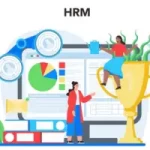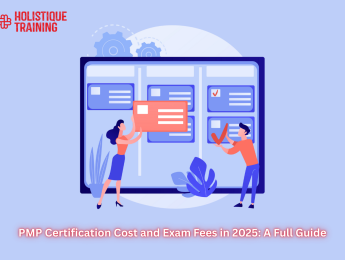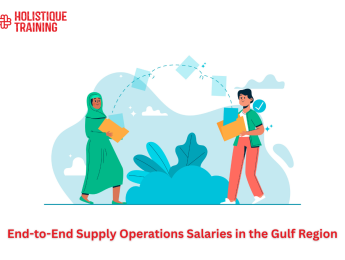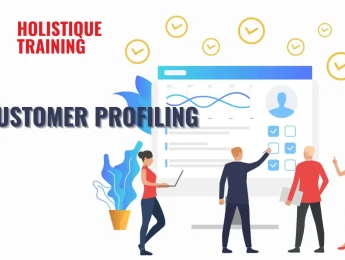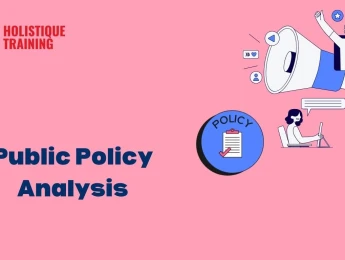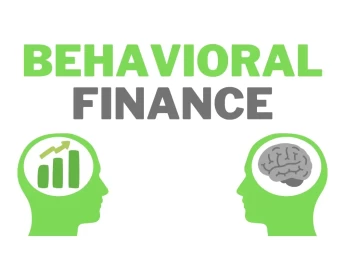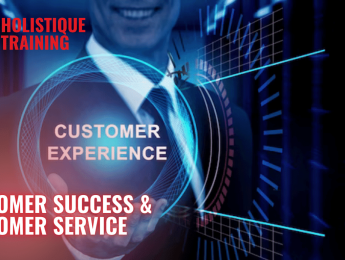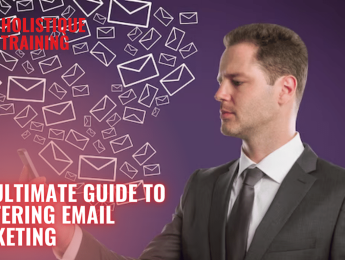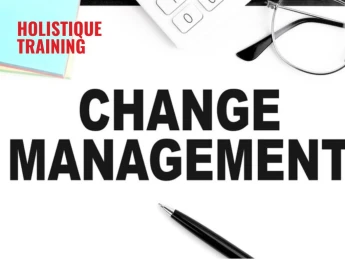- Table of Contents
- Introduction
- What Is HR Marketing?
- Components of HR Marketing
- Why Is HR Marketing So Important?
- Attracting Top Talent
- Building Employer Brand
- Engaging Employees
- Showcasing Organisational Culture
- Attracting Diverse Talent
- Nurturing Long-Term Relationships
- How to Create an HR Marketing Strategy
- 1. Define Your Employer Value Proposition (EVP)
- 2. Identify Target Audience
- 3. Develop a Communication Plan
- 4. Create Compelling Employer Branding Materials
- 5. Employee Involvement and Testimonials
- 6. Measure and Optimise
- 7. Personalisation and Automation
- 8. Employer Branding Events and Initiatives
- Five Ways to Improve Your HR Marketing Strategy
- 1- Enhance Candidate Experience
- 2- Leverage Social Media
- 4- Build Relationships with Educational Institutions
- 5- Continuous Learning and Improvement
- The Importance of HR Marketing Training
- Enhanced Knowledge and Expertise
- Improved Talent Acquisition
- Increased Employee Engagement
- Adaptability and Agility
- Data-Driven Decision Making
- Conclusion
Introduction
In today's competitive business landscape, organisations constantly seek ways to attract and retain top talent. The traditional role of Human Resources (HR) has evolved to encompass much more than just administrative functions. HR now plays a critical role in promoting the organisation's brand and culture, and this is where HR marketing comes into play. In this blog post, we will explore what HR marketing is, why it is so important, how to create an HR marketing strategy, five ways to improve your HR marketing strategy, and the significance of HR marketing training.
What Is HR Marketing?
HR marketing refers to the practice of promoting an organisation's employer brand to attract, engage, and retain talent. It involves leveraging marketing techniques and strategies to communicate the organisation's unique value proposition as an employer. HR marketing aims to create a positive perception of the company, its culture, and its career opportunities among potential candidates, current employees, and even external stakeholders.
Components of HR Marketing
1. Employer Branding
Employer branding forms the cornerstone of HR marketing. It involves shaping the perception of the organisation as a desirable workplace. This component delves into understanding what makes the company unique, aligning its core values with the aspirations of potential employees. A strong employer brand communicates the company's culture, values, and vision, making it a magnet for talent.
2. Candidate Engagement
A recent study shows that 86% of surveyed HR professionals stated that recruitment increasingly resembles marketing strategies. This includes candidate engagement. However, it goes beyond the recruitment process. Candidate engagement focuses on creating a positive experience for potential employees at every touchpoint. This involves seamless communication, timely feedback, and insights into the company's culture and growth prospects. Engaged candidates are more likely to consider a job offer seriously, leading to better recruitment outcomes.
3. Employee Advocacy
Employees are the best advocates for a company. HR marketing encourages employees to share their positive experiences and achievements within the organisation. By empowering them to be brand ambassadors, HR teams amplify the authenticity of the company's image. When potential candidates hear genuine stories from existing employees, it creates a compelling narrative, fostering trust and credibility.
4. Strategic Partnerships
Strategic partnerships extend HR marketing beyond traditional recruitment channels. Collaborating with educational institutions, industry associations, and community organisations provides access to a diverse talent pool. These partnerships can include internships, workshops, and collaborative projects, nurturing relationships with potential future employees.
5. Continuous Learning and Growth
In the dynamic landscape of HR marketing, staying stagnant is not an option. Continuous learning is integral to adapting to evolving trends and technologies. HR professionals must be well-versed in the latest marketing strategies, digital platforms, and communication techniques. This ongoing education ensures that HR marketing efforts remain innovative and relevant, resonating with the changing expectations of candidates.
6. Data-Driven Decision Making
Utilising data analytics is a crucial component of modern HR marketing. Analysing metrics such as applicant conversion rates, engagement levels, and time-to-hire enables HR professionals to make informed decisions. Data-driven insights provide a deeper understanding of candidate behaviour and preferences, enabling HR teams to refine their strategies for better outcomes.
7. Diversity and Inclusion Initiatives
Promoting diversity and inclusion is an essential facet of HR marketing. Companies that embrace diversity and create an inclusive workplace culture appeal to a broader talent pool. HR marketing strategies should incorporate initiatives that showcase the company's commitment to diversity, equality, and inclusivity, fostering an environment where everyone feels valued and respected.
In essence, HR marketing is a holistic approach that synergises various elements, aligning them towards a common goal: attracting, engaging, and retaining top talent. By understanding and integrating these components effectively, organisations can craft a compelling narrative that resonates with candidates, creating a workforce that is not just skilled but passionately committed to the company's mission and vision.
Why Is HR Marketing So Important?
In the fast-paced, hyper-connected world of contemporary business, HR marketing stands as an imperative strategic tool, essential for an organisation's survival and growth. Let's explore why HR marketing is indispensable in the modern workplace:
Attracting Top Talent
In a global job market where talent is scarce and fierce competition, attracting the best candidates is a challenge. HR marketing acts as a beacon, guiding exceptional talent toward a company. It transforms an organisation into an employer of choice, showcasing the job role and the company's culture, values, and growth opportunities. By highlighting these aspects, HR marketing magnetises high-quality talent, ensuring that the organisation is staffed with individuals who have the requisite skills and align with the company's ethos.
Building Employer Brand
An employer brand is more than just a logo or a catchy tagline; it's the soul of an organisation, representing its identity in the employment market. HR marketing diligently cultivates this brand, making it distinctive, authentic, and appealing. A strong employer brand differentiates a company from its competitors, making it the preferred choice for potential employees. It fosters a sense of pride and belonging among current employees, who become brand advocates, further enhancing the organisation's reputation.
Engaging Employees
Employee engagement is the fuel that propels an organisation forward. Engaged employees are not just workers but passionate contributors who believe in the company's mission. HR marketing plays a pivotal role in nurturing this engagement. HR marketing ensures employees feel valued and motivated by fostering a positive work environment, communicating the company's goals effectively, and recognising and rewarding employee contributions. Engaged employees are more productive and more likely to stay loyal to the organisation, reducing turnover rates and enhancing overall productivity. In fact, according to Zippia, employees who perceive their organisation as having a purpose beyond financial gains exhibit a 27% higher likelihood of demonstrating loyalty.
Showcasing Organisational Culture
An organisation's culture is its unique identity, reflecting its values, beliefs, and practices. HR marketing is a medium that showcases this culture to the outside world. When exposed to a positive and inclusive work culture through HR marketing efforts, potential candidates are more likely to envision themselves as part of the organisation. This cultural alignment significantly influences a candidate's decision-making process. Moreover, when employees are in tune with the organisational culture, they are more likely to collaborate effectively, enhancing teamwork and overall productivity.
Attracting Diverse Talent
In today's globalised world, diversity and inclusion are not just buzzwords but prerequisites for a thriving workplace. HR marketing attracts a diverse talent pool through its targeted campaigns and initiatives. By showcasing a commitment to inclusivity and equality, organisations can appeal to candidates from various backgrounds, fostering creativity, innovation, and a rich tapestry of perspectives within the workforce. Diverse teams are more adaptable and better equipped to tackle complex challenges, making them essential for an organisation's success.
Nurturing Long-Term Relationships
HR marketing is not merely a one-time effort to attract candidates; it's a continuous process of nurturing relationships. Even after hiring, HR marketing remains instrumental in ensuring that employees remain engaged and motivated. By consistently communicating the company's values, providing opportunities for skill development, and recognising employee achievements, HR marketing fosters a sense of loyalty and commitment among the workforce. This long-term relationship-building is invaluable, as it reduces turnover, enhances employee satisfaction, and creates a stable, dedicated workforce.
In essence, HR marketing transcends the boundaries of traditional recruitment. It is a dynamic, ongoing strategy that permeates every aspect of an organisation, from attracting talent to retaining employees and fostering a vibrant company culture. By embracing HR marketing, organisations secure their present and fortify their future, building resilient, innovative, and passionate teams that drive the company toward unprecedented success.
How to Create an HR Marketing Strategy
Creating a comprehensive HR marketing strategy requires careful planning and consideration. Here are key steps to develop an effective strategy:
1. Define Your Employer Value Proposition (EVP)
Your EVP is the unique offerings that make your organisation an appealing employer. It's not just about the salary; it encompasses your company culture, work-life balance, growth opportunities, benefits, and the overall employee experience. To define a compelling EVP, conduct surveys and interviews with existing employees, analyse employee feedback, and evaluate your competitors. Understanding what sets you apart allows you to craft a message that resonates deeply with potential candidates.
Description | Unique Selling Points |
Innovative projects, collaborative culture, career growth | |
Patagonia | Commitment to environmental sustainability, work flexibility |
Salesforce | Emphasis on equality and diversity, social impact projects |
Airbnb | Inclusive work culture, global travel experiences |
Microsoft | Technological innovation, support food employee growth |
Table 1: Examples of EVPs
2. Identify Target Audience
Every organisation aims to attract a specific demographic of talent. It is crucial to identify your ideal candidates and understand their aspirations, preferences, and values. Conduct market research to comprehend what motivates your target audience. Is it career growth, work flexibility, a supportive work environment, or a combination of these factors? Tailor your messaging to align with the needs and desires of your target demographic.
3. Develop a Communication Plan
Create a comprehensive communication plan once you know your EVP and target audience. Determine the most effective channels to reach potential candidates. These could include social media platforms like LinkedIn, professional job boards, career fairs, industry-specific events, and even your company's website. Tailor your message for each platform, ensuring consistency while adapting the tone and content to suit the platform's audience.
4. Create Compelling Employer Branding Materials
Engaging and authentic content forms the backbone of any HR marketing strategy. Utilise various media formats, such as videos, blog posts, podcasts, and infographics, to showcase your company culture, employee testimonials, success stories, and values. These materials should be polished and professional but also genuine and relatable. Authenticity resonates with potential candidates, creating an emotional connection that goes beyond a typical job advertisement.
5. Employee Involvement and Testimonials
Employees are your most potent advocates. Encourage them to share their experiences and insights through testimonials, blogs, or videos. When potential candidates hear about your organisation from its employees, it adds credibility and authenticity to your employer brand. Genuine employee stories provide valuable insights into the work culture, growth opportunities, and the overall employee experience, helping candidates make informed decisions.
6. Measure and Optimise
Implement robust analytics to measure the effectiveness of your HR marketing efforts. Track metrics like website traffic, application rates, engagement levels on social media, and candidate conversion rates. Analyse the data to understand what works and what doesn't. Are certain platforms driving more traffic? Are specific messages resonating with your audience? Use these insights to refine your strategy continually. Optimisation is an ongoing process that ensures your HR marketing efforts remain relevant and impactful.
7. Personalisation and Automation
Leverage technology to personalise your interactions with potential candidates. Automation tools can help send tailored messages to specific segments of your audience based on their preferences and behaviours. Personalised communication demonstrates that you understand your candidates' needs, making them feel valued and appreciated. Automation also streamlines repetitive tasks, allowing HR professionals to focus on more strategic aspects of candidate engagement.
8. Employer Branding Events and Initiatives
Organise events and initiatives that showcase your company's culture and values. This could include webinars, workshops, hackathons, or even volunteering activities. Employer branding events provide a hands-on experience of your organisation, allowing potential candidates to interact with current employees and get a feel for the work environment. Such initiatives create a memorable impression, making your organisation stand out in candidates' minds.
Creating a compelling HR marketing strategy is not a one-size-fits-all endeavour. It requires continuous adaptation, creativity, and a keen understanding of your organisation's identity and the aspirations of your target audience. By meticulously following these steps, organisations can craft a strategy that attracts top talent and fosters long-term relationships, ensuring a skilled and deeply committed workforce to the organisation's success.
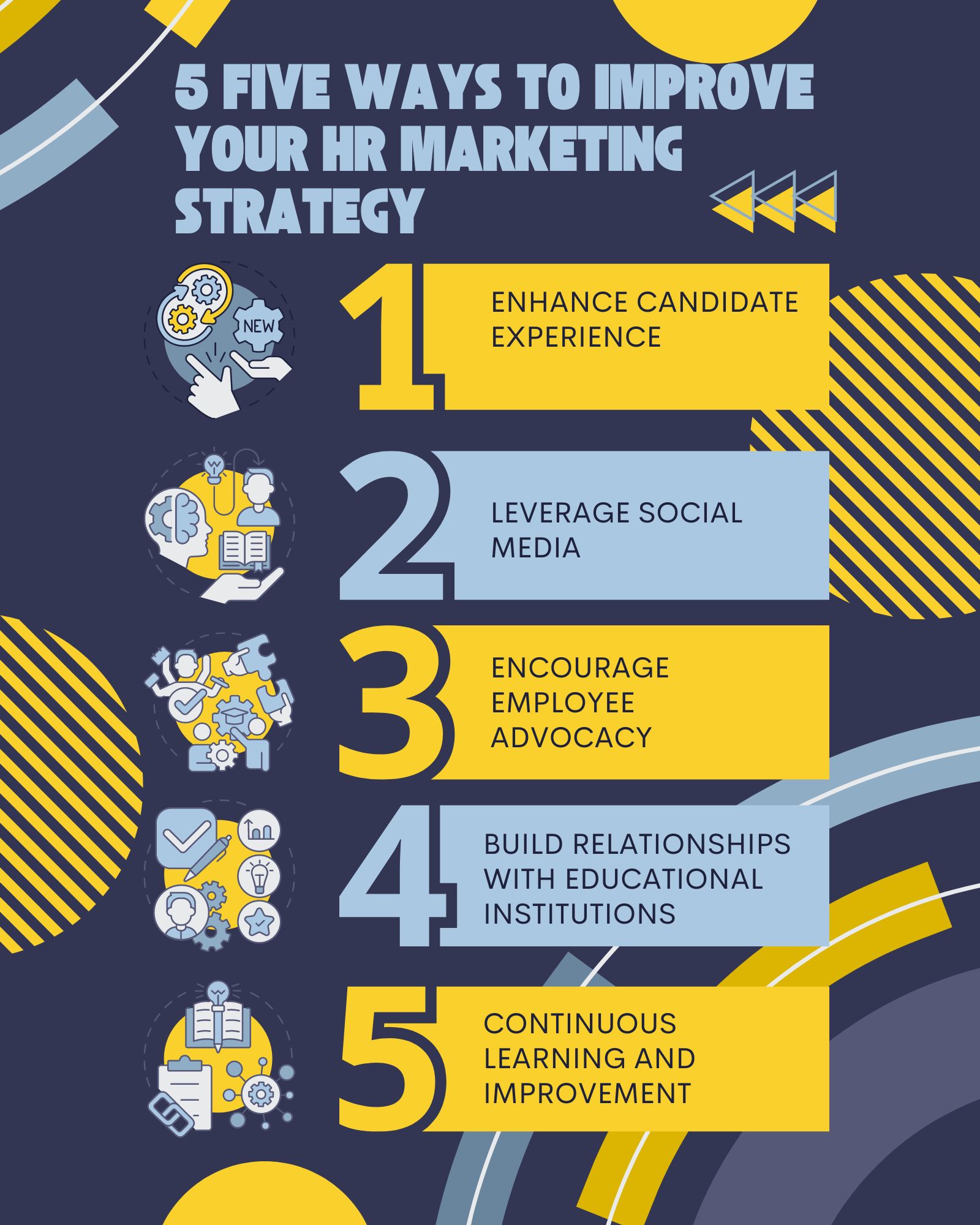
Five Ways to Improve Your HR Marketing Strategy
HR professionals must deploy innovative and effective strategies to stand out and attract the best talent. Here are five indispensable approaches for achieving HR marketing excellence:
1- Enhance Candidate Experience
Focus on providing a positive experience for candidates throughout the recruitment process. In the realm of marketing, there is a delicate balance to strike. Your HR marketing efforts shouldn't come across as pushy or forceful, but rather seamless and captivating, effortlessly drawing in potential candidates, according to Zavvy. Streamline application processes, communicate promptly, and provide constructive feedback to leave a lasting impression, regardless of the hiring outcome.
2- Leverage Social Media
Social media platforms have transformed how people connect, share information, and make decisions. For HR marketing, social media is a goldmine. Establish a strong presence on platforms like LinkedIn, Twitter, Facebook, and Instagram. Share engaging content that showcases your company culture, values, employee achievements, and community initiatives. Engage with your audience by responding to comments, participating in relevant conversations, and leveraging hashtags related to your industry. Social media is not just a broadcasting tool; it's a platform for dialogue and relationship-building. Interactive and authentic engagement fosters a sense of community and belonging, making potential candidates more inclined to explore opportunities within your organisation.
Social Media Platform | Audience Reach | Engagement Opportunities |
Professionals and job seekers globally. | Networking, job postings, industry insights. | |
Diverse audience across age groups. | Employer branding, events, community building. | |
Younger demographic, visually oriented. | Visual content, behind-the-scenes, culture showcase. | |
Broad audience, real-time conversations. | Trend discussions, news sharing, employee advocacy. | |
YouTube | Global audience, video-oriented content. | Video testimonials, company culture videos, recruitment webinars. |
Table 2: Social media platforms for HR marketing
3- Encourage Employee Advocacy
Your employees are your most powerful advocates. Encourage them to share their positive experiences working for your organisation. Employee testimonials, whether in written, video, or social media format, provide genuine insights into the company culture and working environment. Implement employee referral programmes, incentivising employees to recommend potential candidates from their professional networks. When employees proudly endorse their workplace, it adds credibility to your employer's brand. Moreover, employee advocates can offer a unique perspective, addressing potential candidates' questions and concerns, thus building trust and confidence in your organisation.
4- Build Relationships with Educational Institutions
Establishing strong ties with educational institutions is a proactive strategy for talent acquisition. Engage with universities, colleges, and vocational schools through partnerships, internships, co-op programmes, and guest lectures. Participate in career fairs and campus events, giving students a firsthand glimpse into your organisation. Offer mentorship programmes and educational resources, demonstrating your commitment to nurturing talent and supporting learning initiatives. By investing in the educational community, you not only attract enthusiastic and skilled graduates but also contribute to shaping the future workforce. Building relationships with educational institutions is a long-term investment that yields high-quality, motivated candidates who are well-aligned with your organisation's needs.
5- Continuous Learning and Improvement
The landscape of HR marketing is continually evolving, shaped by technological advancements, changing candidate preferences, and emerging trends. To stay ahead, HR professionals must embrace a culture of continuous learning. Invest in training programmes, workshops, and certifications that enhance HR marketing, digital marketing, social media management, and data analytics skills. Stay updated on industry best practices and innovations. Encourage your team to attend conferences, webinars, and networking events, fostering connections with peers and industry experts. A well-informed and adaptable workforce is better equipped to respond to shifting market demands. Continuous learning sharpens skills and fosters a culture of innovation and creativity within the HR marketing team.
Incorporating these strategies into your HR marketing efforts positions your organisation as a magnet for top talent. By enhancing candidate experiences, leveraging social media, harnessing the advocacy of your employees, fostering relationships with educational institutions, and promoting continuous learning, you create a dynamic and compelling narrative. This narrative doesn't just attract candidates; it resonates with them profoundly, sparking genuine interest and enthusiasm. In the competitive landscape of talent acquisition, these strategies become invaluable tools, enabling your organisation to attract exceptional talent and nurture a workforce that is passionate, engaged, and aligned with your company's mission and values.
The Importance of HR Marketing Training
HR marketing is a specialised skill set that requires continuous learning and development. Here's why investing in HR marketing training is crucial:
Enhanced Knowledge and Expertise
HR marketing training equips professionals with an in-depth understanding of the nuances of marketing in the context of human resources. It delves into the psychology of candidate behaviour, digital marketing strategies, branding techniques, and the latest trends in employer branding. With this knowledge, HR professionals can craft compelling narratives that resonate with potential candidates. Understanding the intricacies of online platforms, content marketing, and social media management enables HR teams to engage with candidates effectively, creating meaningful connections and fostering interest in the organisation.
Improved Talent Acquisition
Well-trained HR marketing professionals have their fingers on the pulse of the job market. They understand the ever-changing preferences of candidates, emerging job search platforms, and evolving recruitment technologies. This insight enables them to design recruitment campaigns that are not just attractive but also strategically aligned with candidate expectations. Training equips HR professionals with the ability to identify the most effective channels for talent acquisition, ensuring that the organisation's efforts are focused where they yield the best results. By leveraging this expertise, organisations can attract top-tier talent efficiently and consistently.
Increased Employee Engagement
HR marketing training emphasises the creation of a positive and engaging work environment. It equips HR professionals with the skills to communicate the company's values effectively, fostering a sense of belonging among employees. When employees understand and resonate with the organisation's mission and culture, they are more likely to be engaged and motivated. Training in HR marketing techniques, such as internal communication strategies and employee recognition programmes, enhances employee satisfaction. Engaged employees are not just more productive; they also become natural ambassadors, further bolstering the organisation's employer brand.
Adaptability and Agility
The business landscape is dynamic, with new technologies and trends emerging unprecedentedly. HR marketing training ensures that professionals are well-prepared to adapt to these changes. From the latest social media platforms to innovative recruitment tools, training programmes keep HR teams abreast of the advancements that can enhance their strategies. This adaptability is invaluable, allowing organisations to pivot swiftly in response to evolving candidate behaviours and market demands. By embracing emerging technologies and techniques, HR professionals can maintain a competitive edge, ensuring that their organisation remains appealing to the best talent in the industry.
Data-Driven Decision Making
In the digital age, data is a powerful ally. HR marketing training includes instruction on data analytics specific to HR. Understanding metrics such as applicant conversion rates, engagement levels, and demographic data provides valuable insights. These insights enable HR professionals to make data-driven decisions, optimising their strategies based on real-time feedback. Data-driven HR marketing ensures that resources are allocated efficiently, focusing on channels and campaigns that yield the best results. By utilising analytics, HR teams can refine their approaches, enhancing candidate experiences and ultimately attracting higher-quality talent.
In summary, HR marketing training is not merely an investment; it's a strategic imperative. It empowers HR professionals with the knowledge, skills, and tools to navigate the complexities of the modern job market. HR professionals become architects of a compelling employer brand by enhancing their expertise in marketing techniques, digital platforms, data analytics, and employee engagement strategies. This brand doesn’t just attract talent; it cultivates a workplace culture where employees thrive, innovation flourishes, and the organisation prospers in the face of change. HR marketing training is the cornerstone upon which organisations build their future, ensuring that they remain agile, competitive, and appealing to the best talent in the industry.
Conclusion
In the dynamic arena of contemporary business, HR marketing emerges as the beacon guiding organisations toward a future teeming with talent and possibilities. It's not merely a strategy; it's the lifeline that breathes vitality into an organisation, shaping its identity and ensuring it stands out in the fiercely competitive job market. By seamlessly integrating HR with the art of marketing, companies can attract the best talent and nurture a workforce deeply committed to their mission and values. Embracing HR marketing isn't just a choice; it's an imperative for organisations aiming for long-term success.
We invite you to embark on a transformative journey with us at this crucial juncture. Elevate your HR marketing prowess and revolutionise your talent acquisition strategies through ‘A Masterclass in Strategic HR Management.’ This exclusive course empowers you with the latest insights, proven techniques, and hands-on skills needed to excel in HR marketing. Don't just follow the trends; set them. Join us and unleash your HR marketing strategies' full potential, ensuring your organisation survives and thrives in the competitive landscape. Your path to becoming an HR marketing maestro begins here—seize the opportunity and shape your organisation's future today.





